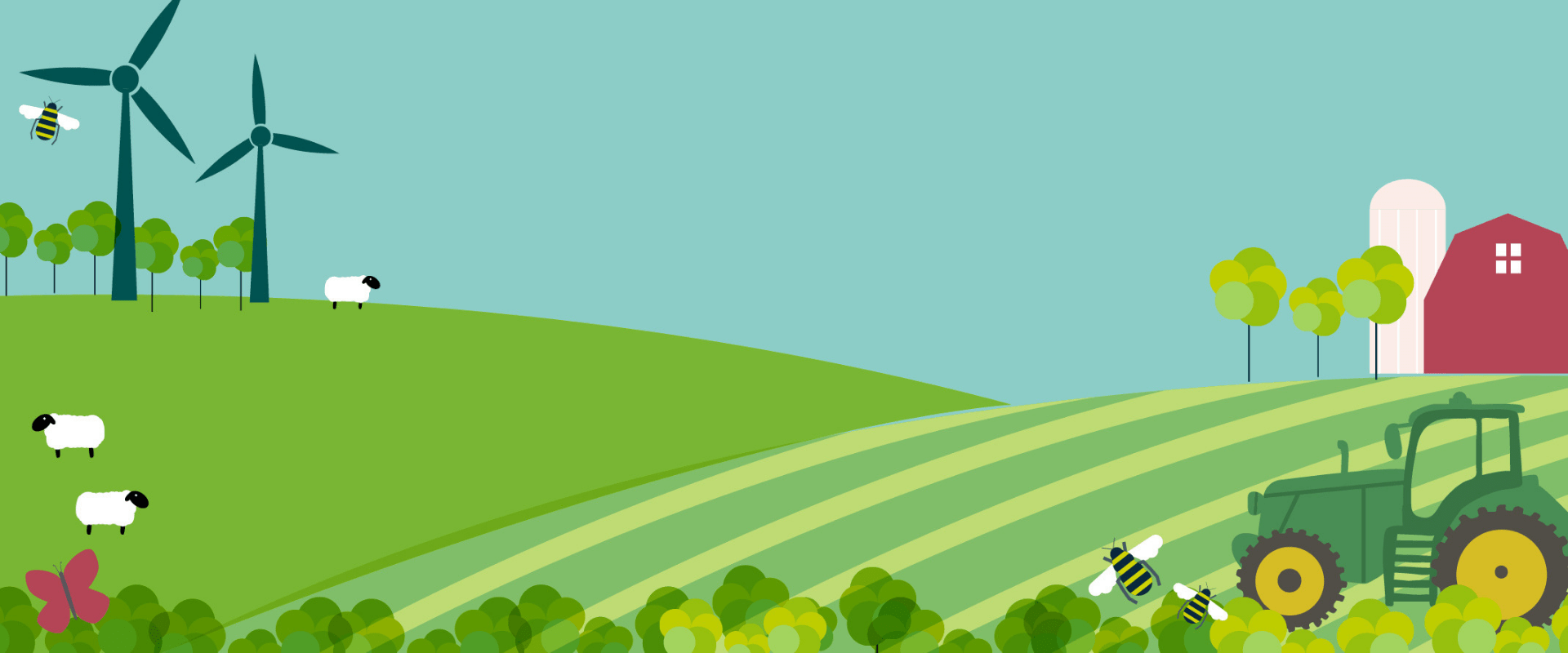Greener Farming
When you think about greenhouse gases – what springs to mind? You might immediately think of carbon dioxide, and you’d be right. But there are other big offenders too that we need to tackle; nitrous oxide which is 300 times more damaging to the climate than carbon dioxide, and methane which is 25 times more damaging.
Most of Scotland’s emissions of these gases come from farming and what’s more the farming sector is now the second biggest emitter of greenhouse gases in Scotland, after transport.
To meet new climate targets farmers must take action to farm in ways which reduce emissions of nitrogen and methane. They can also help by planting trees or managing soils better, thereby taking carbon from the atmosphere and store it in the land for the long-term.
Help and advice for farmers
Farmers need advice and support to change to greener farming methods which grow our food in less polluting ways. One of the key things we asked the Scottish Government’s new Climate Change Bill to address is nitrous oxide emissions, and we called for the Government to create a Nitrogen Balance Sheet for Scotland which has specific targets set by 2020. That means creating a nationwide picture of the country’s nitrogen consumption and emissions as well as recommending ways for us to cut down.
Better fertiliser use
Nitrogen is a key ingredient in chemical fertilisers which are used on farms to help crops and grass grow. Huge amounts of emissions are released when nitrogen fertiliser is manufactured, and when too much fertilizer is spread onto the fields or it’s used poorly, nitrous oxide is released into the air as a gas. In 2015, over 160,000 tonnes of excess nitrogen fertiliser was used on Scottish farms. Not only did this release an unnecessary amount of nitrous oxide, but it also polluted our waterways.
A win-win solution
Monitoring and reducing the amount of nitrogen we use in Scotland through a Nitrogen Balance Sheet is really a no brainer. Government should be creating this Balance Sheet to help farmers plan how they use fertiliser better and practice green farming. Farmers will still be able to use fertilisers, but they won’t be spending more money than they need, and a Nitrogen Balance Sheet could also encourage farmers to switch to alternative fertilisers, such as composts made from recycled food wastes.
Other industries could be encouraged to follow suit and reduce their nitrogen consumption too; from fisheries to forestry. And we’d all benefit too, not only from reduced emissions but also from cleaner water, reduced water treatment costs and less food going into landfill sites.

